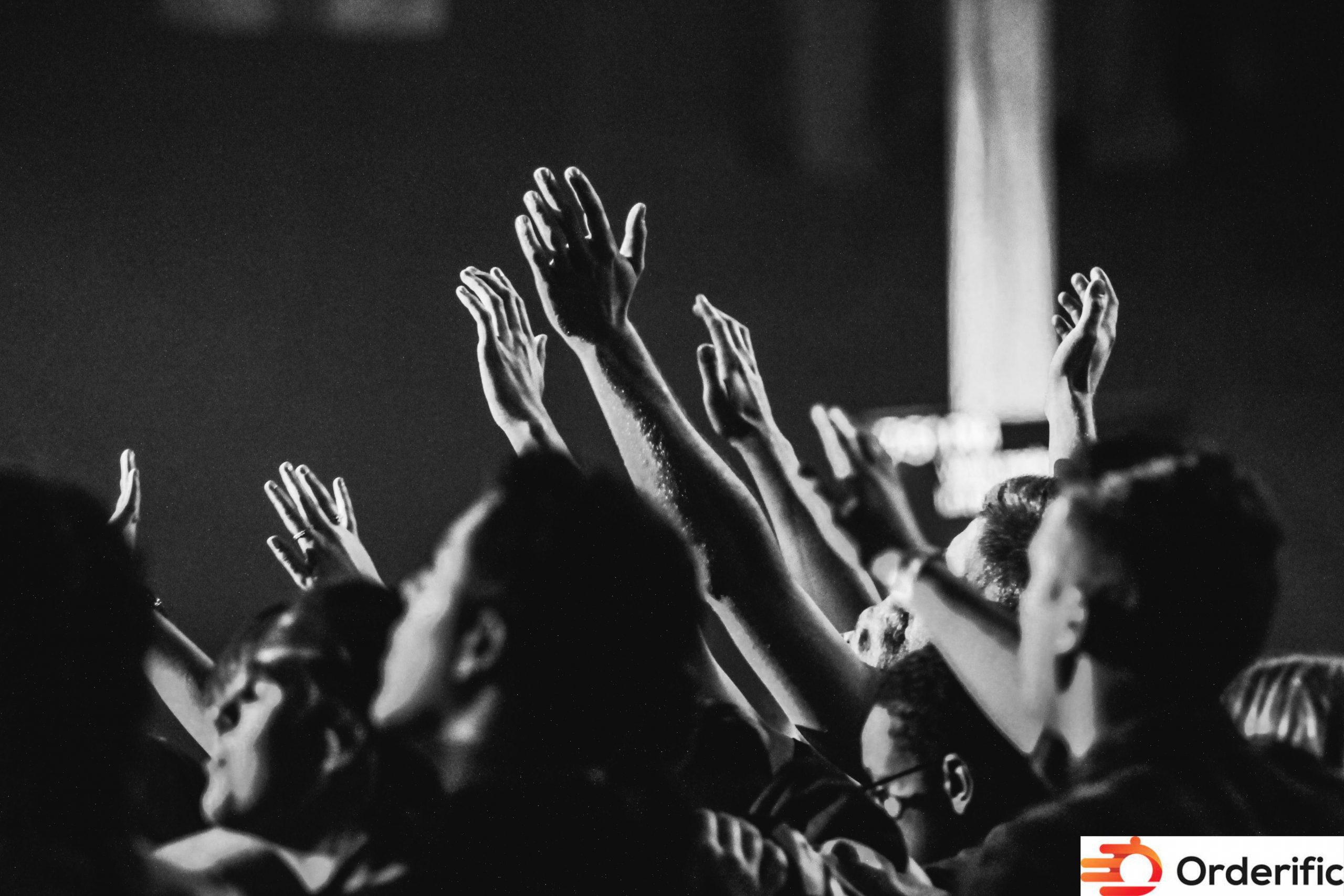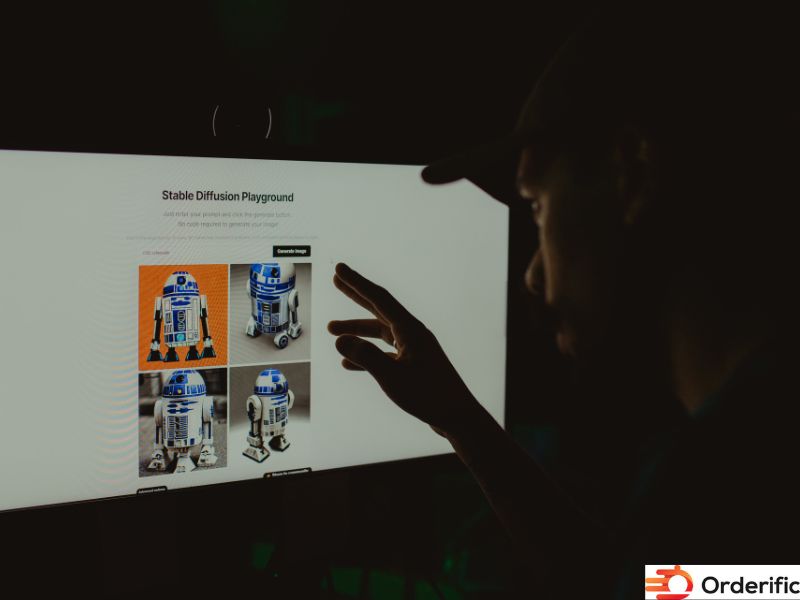Introduction
The era of big data has ushered in an unprecedented opportunity for event organizers. The wealth of event data collected before, during, and after events – from attendee behavior to event tracking – can offer valuable insights for future event planning. Event data analytics has become a vital tool for achieving event success, enabling event planners to harness the power of data and make informed decisions tailored to their attendees’ preferences. Whether a virtual event or a physical gathering, leveraging data analytics for event marketing strategies can enhance the attendee experience and pave the way for successful future events. Understanding event analytics and insights is the key to unlocking the full potential of event data.
What Event Data Should You Collect?
Collecting the right event data is crucial for event organizers seeking to leverage the full potential of data analytics. It helps provide valuable insights into attendee behavior, guiding the planning of future events and setting the stage for event success. Key data points include attendee demographics, event tracking metrics, and feedback, all of which feed into the larger pool of big data available for analysis.
Event data analytics utilizes this data, applying processes like predictive analytics to anticipate trends and outcomes for future events. For instance, analyzing attendee behavior at a virtual event can offer a glimpse into their preferences and behaviors, influencing event planning decisions. Event marketing, too, can benefit greatly from these insights, helping tailor campaigns to the audience’s interests.
Data analytics also plays a role in the broader context of event success. By integrating tools like Google Analytics, event planners can track and measure the performance of their marketing efforts, refining strategies for more successful outcomes. It’s all about leveraging data for better decision making, creating more engaging and memorable experiences for attendees, and ensuring the success of future events.
In essence, understanding and employing event data analytics is a powerful way to translate raw data into actionable insights, helping event organizers make data-driven decisions that elevate the attendee experience and ensure event success.
How To Leverage Event Analytics For Success

Narrow Down Your Goals
The first step in leveraging event analytics for success involves setting clear, specific goals. Event organizers need to define what they hope to achieve using event data analytics. Whether it’s to increase attendee engagement, enhance event marketing efficiency, or improve the overall event experience, pinpointing objectives is essential. With these goals in mind, event planners can then determine the particular event data necessary to collect and analyze.
For instance, to understand attendee behavior, data on their interests, interactions, and feedback during the event should be gathered. Analytics tools like Google Analytics can assist in tracking this data, providing valuable insights for future event planning. Additionally, predictive analytics can be employed to forecast future trends, guiding the planning of subsequent events.
Big data plays a significant role in this process, offering a rich source of information for event analytics. By delving into this wealth of data, event organizers can derive actionable insights that drive event success. Furthermore, these insights can be utilized in devising data-driven event marketing strategies, tailoring campaigns to resonate with the attendees’ preferences and ensuring memorable experiences that drive the success of future events.
Figure Out The Best Engagement Methods
Identifying the most effective engagement methods is a crucial aspect of leveraging event analytics for success. This step involves analyzing the collected event data to understand what engages your attendees the most. Whether it’s interactive sessions, engaging keynote speakers, or unique networking opportunities, data analytics reveals what drives attendee involvement. For instance, if data shows high attendee engagement during interactive workshops, future events can be designed to include more of these sessions. Similarly, feedback on keynote speakers can inform the selection process for future events, ensuring that the speakers resonate well with the audience. Analytics can also shed light on the most effective communication channels, enabling event organizers to reach their audience more effectively.
Whether it’s through social media, email newsletters, or mobile apps, event marketers can tailor their outreach efforts based on the insights gained from data analytics. In essence, understanding the best engagement methods through data analytics is a strategic move towards achieving event success.
Discover And Track Key Outcomes
Continuing the journey towards successful event management, discovering and tracking key outcomes is a vital phase. This involves defining the key performance indicators (KPIs) that align with your event goals, and then using data analytics to measure these outcomes. For instance, if one of your objectives is to increase attendee engagement, then the KPI might be the percentage of attendees participating in interactive sessions. Tools like Google Analytics can help track these metrics, shedding light on whether the event met its objectives or if improvements are needed.
Also, post-event surveys can be invaluable in measuring attendee satisfaction, providing direct feedback on their experience. These metrics not only indicate the success of the current event, but also provide insights that guide the planning of future events. Therefore, consistently tracking outcomes and adjusting strategies based on the data is critical for continuous improvement and event success.
Finally, data analytics offers the advantage of predictive modelling. This uses historical data to predict future outcomes, providing a roadmap for future event planning. For instance, if data shows that a particular marketing strategy led to a surge in ticket sales, this strategy can be emphasized in future campaigns.
Find The Most Effective Marketing Channels
Leveraging the right marketing channels is crucial for event success. Event data analytics can provide valuable insights into which channels are most effective in reaching your target audience. For instance, if the data shows high engagement rates from social media campaigns, it suggests that platforms like Facebook, Twitter, or LinkedIn are effective channels for your marketing efforts. On the other hand, if email campaigns result in a higher click-through rate, then this channel might be more beneficial for promoting future events. Event organizers can also use data analytics to understand the timing and frequency of marketing posts that generate the most engagement. By examining these metrics, you can tailor your marketing strategy to optimize the reach and impact of your communication. Remember, the goal is not just to use data analytics to understand past and present event trends, but also to forecast future patterns and strategize accordingly for event success.
Make All Online Events Accessible
In today’s increasingly virtual environment, making all online events accessible is key to event success. Event data analytics can provide valuable insights into how to enhance the accessibility of your events. For instance, data on audience demographics can reveal if there are any barriers that might hinder participation, such as language or technical difficulties. To overcome these, event organizers can incorporate features like multilingual support or user-friendly interfaces. Furthermore, data on attendee behavior during the event can shed light on what components were most engaging and which were not, facilitating the development of more engaging and accessible events in future. Data analytics thus plays a crucial role not only in understanding the current accessibility of your events but also in identifying areas for improvement to ensure all future events are inclusive and accessible to all.
Tweak Your Messaging
The success of your event can be greatly influenced by the effectiveness of your messaging strategy. Event data analytics can provide invaluable insights into what type of messaging resonates with your attendees. By analyzing feedback and engagement data, you can pinpoint whether your messaging was clear, compelling, and aligned with the expectations of your audience. For instance, if data shows attendees responded positively to a particular theme or style of communication, future messaging can embody these successful elements. Moreover, understanding which platforms have the most impact on your audience can inform where you concentrate your messaging efforts, whether it’s email, social media, or your event website. In essence, event data analytics empowers you to refine your messaging strategy, ensuring your communications are effective, engaging, and instrumental in driving event success.
Browse Social Media Sentiment Analysis
Social media sentiment analysis plays a crucial role in comprehending the success of your event. It provides a rich source of unfiltered feedback, uncovering how attendees perceive your event. Leveraging event data analytics, you can analyze sentiments expressed across social platforms regarding your event. Positive sentiment indicates successful aspects of your event, while negative sentiment highlights areas for improvement. For instance, praising comments about a keynote speaker may suggest more speakers of a similar caliber for future events. Criticism about technical difficulties could signal a need for better technical support. This real-time feedback from attendees is invaluable in refining your event planning strategy to ensure future success. Hence, monitoring and analyzing social media sentiment is an essential component of event data analytics.
Track Marketing ROI
The effectiveness of your marketing endeavors can be gauged by tracking marketing Return on Investment (ROI). This involves measuring the revenue generated from your marketing efforts against the costs incurred. Event data analytics is instrumental in tracking this ROI, providing insights into how well your marketing strategies are working. For instance, you can analyze the number of tickets sold as a result of a specific marketing campaign, and compare this to the cost of running that campaign. If the returns are significant, it indicates a successful strategy that can be employed in future events. Conversely, low returns could suggest a need to reassess and tweak your marketing efforts. In a nutshell, tracking marketing ROI via data analytics is a vital process, ensuring your marketing resources are being used effectively to achieve event success.
Customize Your Ticket Types
Customizing your ticket types is a strategic move towards maximizing event success. Event analytics can provide insights into your attendees’ preferences, allowing you to tailor ticket options to their needs and expectations. On the other hand, if attendees are price-sensitive, offering early bird or discounted tickets could boost registrations. By analyzing historical sales data and attendee feedback, you can identify which ticket types are the most popular and profitable. This enables event organizers to design a ticket strategy that not only caters to diverse attendee preferences, but also optimizes revenue. Therefore, leveraging data analytics in customizing ticket types is an effective approach to attract a larger audience and achieve event success.
Make Smarter Financial Decisions
Making intelligent financial decisions is crucial to ensure the profitability and success of your events. Data analytics can play a significant role in informing these decisions. By analyzing historical financial data, such as expenditure and revenue streams, event organizers can identify areas of high cost and low return, giving them the opportunity to reallocate resources more effectively. For example, if data shows that a certain event feature isn’t generating anticipated interest or revenue, organizers can decide to eliminate or modify it for the next event. Equally, if a particular aspect proves to be highly profitable, investing more in it for future events would be a smart move. By utilizing data analytics, event planners can make informed financial decisions, optimizing their budget, increasing profitability, and paving the way towards event success.
Conclusion
In conclusion, leveraging event data and analytics is a game-changer for successful event planning. It provides the power to understand attendee behavior, discover and track key outcomes, find the most effective marketing channels, enhance accessibility of online events, refine messaging strategies, analyze social media sentiments, track marketing ROI, customize ticket types and make informed financial decisions. The insights derived from data analytics not only improve the present event management strategies but also provide a roadmap for future event planning. With this treasure trove of actionable data, event organizers can stay one step ahead, create unforgettable experiences for attendees, and ultimately drive event success.
Intrigued on how event data analytics can propel your event to new heights? Orderific is here to make it easy for you. Schedule a demo with us today and discover how we can supercharge your event planning strategy with the power of data analytics. It’s time to unlock the potential of your event data and pave the way to an unparalleled event experience.
FAQs
What is the significance of event analytics, and how does it contribute to successful events?
Event analytics provide valuable insights from past events, enabling you to make data-driven decisions that enhance engagement, improve marketing strategies, and increase event success.
Can event analytics be applied to different types of events, regardless of size or scale?
Yes, event analytics can be applied to all events, regardless of their size or scale.
How do event organizers interpret and leverage insights gained from analytics to enhance future events?
Event organizers use insights from analytics to improve strategies, enhance attendee engagement, optimize marketing efforts, and make informed decisions for future events.
Are there specific tools or technologies that facilitate the implementation of event analytics for organizers?
Yes, there are various tools like Google Analytics, Orderific, Tableau, etc., that help in implementing event analytics effectively.













